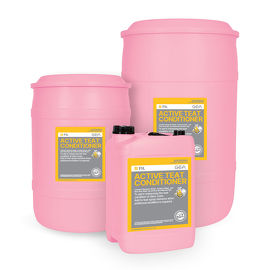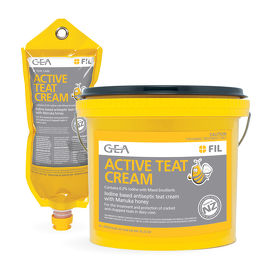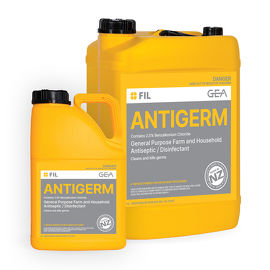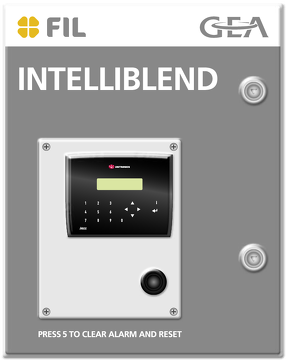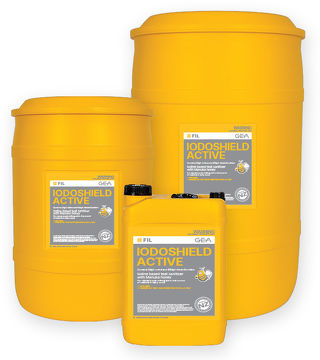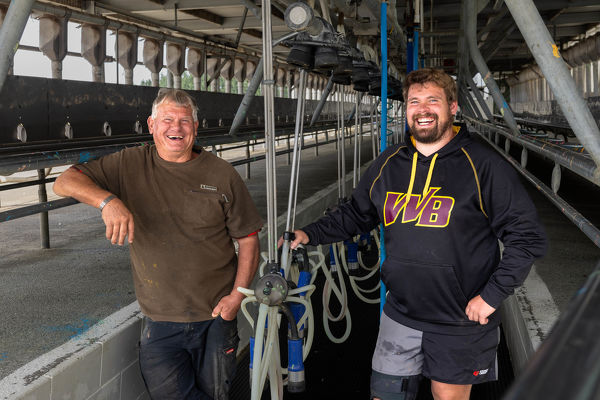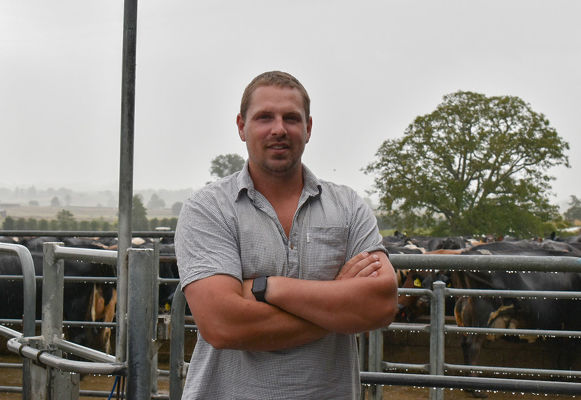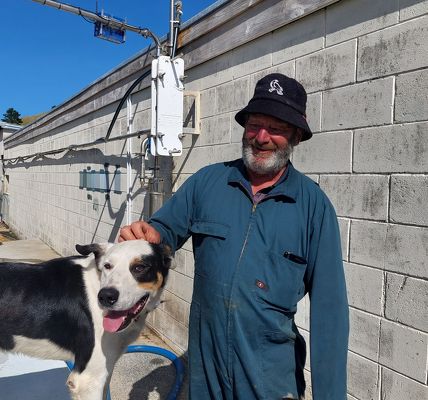Tim Rivers - Otago
Simple changes make significant improvements for Central Otago farmer
Clinical mastitis cases and SCC levels have dropped significantly after Tim Rivers made small but critical animal health improvements with the help from FIL. This has led to a significant reduction in the use of drugs in the 1,200-cow herd.
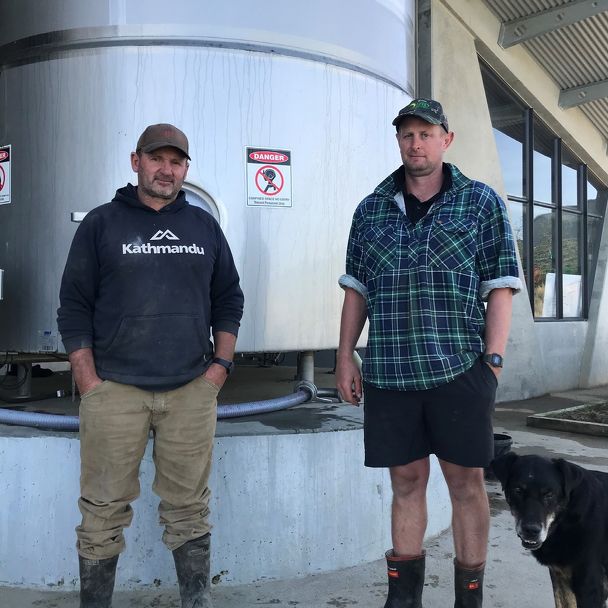
It was a case of ‘prevention is the best cure’ and looking at the long-term gains for Tim, who implemented a variety of changes in the dairy shed and upskilled his staff to tackle the mastitis problem he had been dealing with for years.
This year is the fifth season on Goldenburn Farm for former sheep and beef farmer Tim. Tim purchased the 350-hectare Alexandra land in 2013 and converted it to dairy in 2017.
Going into the 2021/2022 season, Tim made a call to make some serious changes.
Mastitis numbers were high, affecting as much as 30% of the herd (380 cows) and SCC was elevated, sitting at 223,000.
The situation took its toll on the team of five and Tim had also been implementing antibiotic susceptibility testing, which was adding cost and complexity without any real results.
“My team were getting frustrated. And we were seeing no improvements,” says Tim.
Small but critical changes
To tackle the issues at hand, Tim decided to reach out to FIL in June of 2021. FIL South Island Manager, Mike Robinson, picked up the call headed out to Goldenburn to assess the team’s milking techniques and standard operating procedures (SOPs).
Leading into spring calving, Mike returned and looked at making small but critical changes, keeping the long-term goals front of mind.
“FIL had a good look at our plant and saw how everything was running. Cup alignment needed improvement, so we rectified the issues there and started training the team,” says Tim.
A large component of the training was around how to handle freshly calved cows and minimising mastitis in early lactation, recommending the following simple changes:
1. Clean gloves for every milking:
Maintain high hygiene standards during milking. This includes wearing clean gloves and washing hands between cows with a bucket of hot water mixed with Antigerm disinfectant.
2. Pre-spray with an iodine-based teat spray:
Iodine-based teat spray is preferred because of its broad spectrum and faster action. This also starts softening any dirt from the teat.
3. Trim tails:
Trimmed tails reduce the transfer of environmental pathogens onto the udder.
4. Alcohol wipes:
Clean each quarter with an individual alcohol wipe, paying particular attention to the teat barrel and teat end. This critical step is often missed.
5. Cup alignment:
Make sure cups are hanging squarely under the udder to promote an even milk out.
6. Post-spray:
After milking, post spray with an iodine-based teat spray with emollient levels between 12-15% and iodine at a minimum of 3450 ppm of ready-to-use solution.
Apply Active Teat Cream to any damaged or cracked teats.
Staph aureus was also present in this herd, so the iodine levels were adjusted to 3450 ppm for most of the season to have more effect on this pathogen.
Mike says when they started working with Tim and his team, they had a very clear goal in mind to reduce mastitis by 50%.
“I knew if they stuck to the calving milking procedures and were patient enough, their mastitis rate would reduce,” says Mike.
In Tim’s case, his patience has paid off.
“The calving milking plan is gold. Having the FIL team help identify problems and help train and fine tune our team’s skills, as well as mentor them around best practice, really got them up to speed and up to the FIL standard,” says Tim.
Tim adds that rather than his staff constantly treating cows, they now have more time to perform other tasks on farm in the spring when they are usually time poor.
“Our initial reason for working with FIL was actually reliability of products,” says Tim.
The FIL team introduced Iodoshield Active and Active Teat Conditioner early in the process when Mike came on board to help combat the staph aureus within the herd. An older automated teat spray mixer was also upgraded.
“Now you just know the teat spraying is getting done right every day,” Tim says of the new automated teat spray mixer.
However, what Tim found was that the FIL team’s knowledge and expertise would be a big game changer. It was also the beginning of the team taking preventative actions, instead of treating cows for mastitis.
Tim attributes the specific training, making small changes and the use of FIL products to his herd’s teat health improving significantly in the following months, adding that what the team was learning was helping them gain a broader understanding of mastitis management too.
Patience pays off
That November, Tim saw the SCC drop to 95,000.
More significant improvements in animal health, financial gains and time savings came gradually.
Mastitis cases dropped significantly from treating 380 cows down to 135 cows the following season. That’s a cost saving of around $49,000.
“I had to look long term if we were to really turn things around,” Tim says.
“Things didn’t happen overnight, but the changes paid off. Having someone like Mike, with his expertise and knowledge was so valuable,” he adds.
Mike is beyond thrilled to see the results on Tim’s farm, saying he knew there would be an impact after the first season but would take two to three seasons to achieve greater results.
“Since Tim and his team have been working with FIL, they have had a cost reduction of 71% in treatments and milk loss,” says Mike.
“Good things take time and luckily Tim has a great team on board who implemented changes well.”
“Some problems can take longer to resolve so correct milking procedures and having farm staff trained well is vital,” he adds.
Looking ahead
Best of all, Tim’s happy with where his farm is at today, as are his team. Going forward, he’s looking at this season with both relief and optimism.
As of February 2023, the herd’s average SCC is sitting at 141,000.
“We are really happy with the results, but there is more work to be done,” concludes Mike, adding that they’d like to see treatments drop to five percent of the herd eventually.


